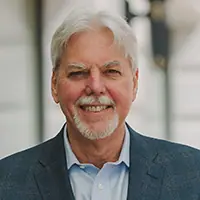
A World Full of Challenges
This is not an easy time to be a very large bank doing business in the United States. The landmark Dodd-Frank Act, a comprehensive legislative response to the financial crisis of 2008, imposes much stricter prudential regulatory standards on banks with $50 billion or more in assets. Included among its tough new provisions are higher capital standards and the Volcker Rule, which would impose restrictions on proprietary trading and fund investment. There are also new single-counterparty credit limits to reduce the exposure of systemically important financial institutions to the fortunes of any single company and so-called living wills, which are detailed plans that large banks must submit annually to federal regulators describing how they could be quickly liquidated should they fail.
Nor is it an easy time to be a general counsel for a large bank that falls under Dodd-Frank’s immense shadow, since the general counsel is often the point person most responsible for deciphering new regulations and explaining their impact to the board and its senior managers. Bank Director magazine recently hosted a roundtable discussion on the regulatory challenges facing large banks and their general counsels. The participants were Eric F. Grossman, chief legal officer for Morgan Stanley based in New York; Simon A. Fish, executive vice president and general counsel for Toronto-based BMO Financial Group, which has extensive operations in the United States; H. Rodgin Cohen and Michael Wiseman, both partners at the law firm Sullivan & Cromwell LLP in New York; and Bank Director Editor Jack Milligan. The discussion took place in Sullivan & Cromwell’s office.
Although the financial crisis of 2008 has passed, and the U.S. economy has slowly recovered from the Great Recession that officially ended in 2009, large banks still operate in a very challenging environment. For example, there have been calls from a variety of people, including some former high profile financial services executives, that very large banks should be broken up to reduce their systemic risk to the U.S. banking system. Wiseman pointed out that this is really a continuation of a national debate over the concentration of economic power that began in 1790 when Secretary of State Thomas Jefferson opposed the creation of the Bank of the United States, which had been championed by Treasury Secretary Alexander Hamilton.
“It’s a very strong historical tradition that emerges from time to time,” said Wiseman. “I don’t think you can dismiss it. Breaking up the large banks would impact us on the world stage.”
The era of tougher regulation stems in part from Dodd-Frank and other legislative and regulatory initiatives, but also from the pressure the regulators themselves are feeling to crack down on the industry, according to Cohen. “The regulators are also under siege and that never works well for the industry,” he said.
Fish took a somewhat stoic approach, saying there was little sense in complaining about the operating environment. As much as ever, it is better to continue to offer high quality products and services. “Focus on providing a great customer experience,” he said.
The Volcker Rule, which the federal regulators have yet to issue in its final form, would prohibit banks from trading for their own account rather than on behalf of their customers. But Grossman worries that it won’t always be easy for regulators to distinguish between the two. “One person’s proprietary trade is another person’s customer trade,” he said. And this could pose a significant problem for banks if they are unsure of how their trading activities will be interpreted. “The negative impact is less from the prohibition than the uncertainty,” said Cohen. “What potential enforcement actions might be out there?”
There is no question that bank boards of directors are also feeling the strain of an expanded and more demanding regulatory climate. “They are extremely focused on it,” said Morgan Stanley’s Grossman. “It’s on the agenda for every [board] meeting and nearly every committee meeting.”
Fish has a special challenge in that BMO Financial has boards in both Canada and the United States. “So every quarter I’m going through this process twice,” he said. “Our boards have an obvious desire to understand what’s going on with regulation. The character of our meetings reflects that.”
Wiseman worries that directors are forced to dig so deeply into their banks’ operations that they are losing the objective distance that has traditionally separated the board from management. Cohen said this was a worrisome trend that could degrade the quality of board oversight at large banks. “The board is oversight and the bank is management,” he said. “Does it make for less effective governance?”
Something else that has changed in a post-Dodd-Frank world is the general counsel’s job itself. Grossman pointed out that his office is more intensively focused on regulation than ever before, and he has been forced to increase his staff because of it. “It’s a completely different job than it was before,” he said.
Fish has experienced the same pressure at BMO Financial. “I spend considerably more time on regulatory and compliance risk than my predecessors did,” he said.

Join OUr Community
Bank Director’s annual Bank Services Membership Program combines Bank Director’s extensive online library of director training materials, conferences, our quarterly publication, and access to FinXTech Connect.
Become a Member
Our commitment to those leaders who believe a strong board makes a strong bank never wavers.



